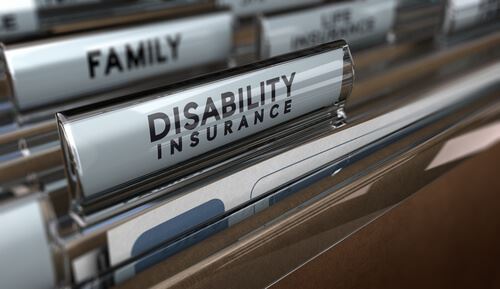 Short-term disability insurance is a type of insurance that pays a percentage
of your salary as an employee for a specified period of time if you are
disabled to the extent that you cannot perform your job duties. Such incapacity
comes from contracting an illness or sustaining an injury. Usually, short-term
disability pays you about 60 percent of your gross income.
Short-term disability insurance is a type of insurance that pays a percentage
of your salary as an employee for a specified period of time if you are
disabled to the extent that you cannot perform your job duties. Such incapacity
comes from contracting an illness or sustaining an injury. Usually, short-term
disability pays you about 60 percent of your gross income.
When you have an illness or injury that prevents you from working, you first apply for short-term disability insurance if you have disability insurance coverage. Short-term disability typically starts from one to 14 days after you stop working. In many cases, companies urge or require their employees to use up the remaining sick days that they have before short-term disability begins. This is to take full advantage of such a benefit before the coverage cancels it out. Also, in some places, employers may offer more than one type of short-term disability, such as plans that cover injuries that occur at the workplace.
The time of short-term disability coverage varies, but the typical short-term disability insurance policy covers 180 days. In some instances, employees might be out for a longer amount of time than the period of time the short-term disability policy pays disability benefits. That would require the employee to next start a long-term disability insurance claim, assuming the employee has long-term disability insurance through work. Long-term disability claims are challenging to get approved, as insurance companies often deny these benefits.
Short-term disability is usually provided through an employer. In this instance, the disability policy is referred to as a group plan or group coverage. If your employer offers short-term disability insurance, you can sign up for it during what is known as an initial enrollment period. This means that you cannot be denied coverage based on a pre-existing medical condition, which makes it especially important to sign up then.
Signing up after the initial enrollment period, you may have to undergo medical underwriting. Some cases, however, might involve self-employment or working for a company that does not offer short-term disability coverage. Such instances would call for a consideration to buy an individual policy; you would have to go through medical underwriting to get individual short-term disability insurance.
Ready to speak with our disability insurance lawyers? We encourage you to call us today!

